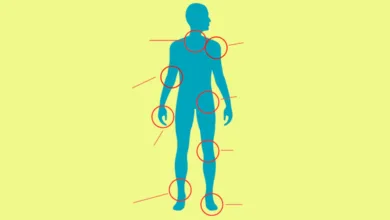Dealing with Divorce Grief

Divorce is rarely easy at any age, but when it happens after 50, it often carries a unique set of challenges. The emotional terrain can be challenging to navigate, especially when grief lingers long after the marriage has ended.
Having experienced divorce first-hand after 34 years of marriage at nearly 60 years old — and having gone on to become a certified divorce coach — I speak from my own experience as well as that of most clients when I confirm that divorce almost always involves grieving.
Even when both partners agree that parting ways is best, it is common to mourn the loss of what was good in the relationship. Understanding and acknowledging these feelings is a critical step toward healing and building a fulfilling life after divorce.
Grief after divorce
Grief following a divorce is complicated. While anger and resentment often dominate the initial stages, these emotions can sometimes shield against deep, more painful feelings.
Once the first stage of anger subsides, it’s common to experience a profound sense of loss—not just for the relationship but also for the shared history, the life plans that will never come to fruition, and the identity tied to being part of a couple.
This grief can be particularly complex for those who spent decades in a marriage. Moments of joy, intimacy, and partnership may have held a place of value, even in hindsight. These memories can stir sadness and longing, even without a desire to reconcile. The mind and heart often struggle to manage the conflicting feelings of mourning the good while accepting the necessity of separation.
Why grief lingers
Several factors contribute to the lingering grief in mid-life divorces:
1. Length of the marriage
A decades-long marriage holds countless memories, milestones, and traditions. Letting go of such a significant portion of one’s life can feel like losing a part of oneself.
2. Loss of identity
Many people build their identities around their roles within the marriage—spouse, parent, or partner. After divorce, there’s often a period of identity crisis as individuals grapple with who they are outside of these roles.
3. Social shifts
Divorce can disrupt long-standing social networks. Friends may take sides, or couples’ friendships may dissolve, leaving one feeling isolated when support is most needed.
4. Aging and uncertainty
Facing the future alone can be daunting. Concerns about financial stability, health, and companionship can amplify feelings of grief and loss, especially if other parts of life have quieted through retirement or an empty nest.
5. Unresolved dreams
Most couples share dreams and goals for their later years. Realizing that these plans will never happen can be deeply painful.
Honoring the good while letting go
One of the keys to effectively dealing with lingering grief is learning to honor the positive aspects of the marriage without letting them hold you back. This involves acknowledging the good times for what they were while also recognizing that the relationship, as a whole, was no longer supportive, satisfying, or serving both partners.
Here are some strategies to help ease the transitional feelings of grief:
1. Allow yourself to grieve
Grief is a natural and necessary part of the healing process. Permit yourself to feel sadness, even for the good moments. Bottling up these emotions can prolong the pain.
2. Focus on personal growth
Use this period to rediscover yourself. What passions or interests did you set aside during the marriage? What new paths can you explore?
3. Seek support
Sharing your feelings with others, whether through a divorce coach, therapist, support group, or trusted friends, can provide comfort and perspective.
4. Practice gratitude
Reflect on the good parts of the marriage and express gratitude for the lessons learned and the experiences shared. This doesn’t mean ignoring the pain but instead finding a balanced perspective.
5. Envision a new future
While it’s important to honor the past, it’s equally crucial to focus on the possibilities ahead. Create new goals and dreams for this next chapter of life.
Finding joy again
Recovering from a divorce after 50 doesn’t mean erasing the past; it means integrating it into your story in a way that allows you to move forward. This journey will look different for everyone, but with time, patience, and self-compassion, it is possible to find joy and fulfillment again.
Explore new hobbies, volunteer, or reconnect with old friends. These activities can help fill the void left by the marriage and provide a sense of purpose and connection. For some, this may also lead to discovering a more profound sense of peace, freedom, and adventure!
You ain’t dead yet!
Divorce after 50 can bring about a unique and profound sense of grief, but it also offers an opportunity for reinvention and growth. By acknowledging the wide range of your emotions and taking deliberate steps toward healing, you can emerge from this challenging time with a renewed sense of self and a brighter outlook for the future. You may even consider dating again in the future!
The ending of one chapter can be the beginning of another—as it has been for me; your next chapter can be filled with resilience, self-discovery, and new possibilities.






